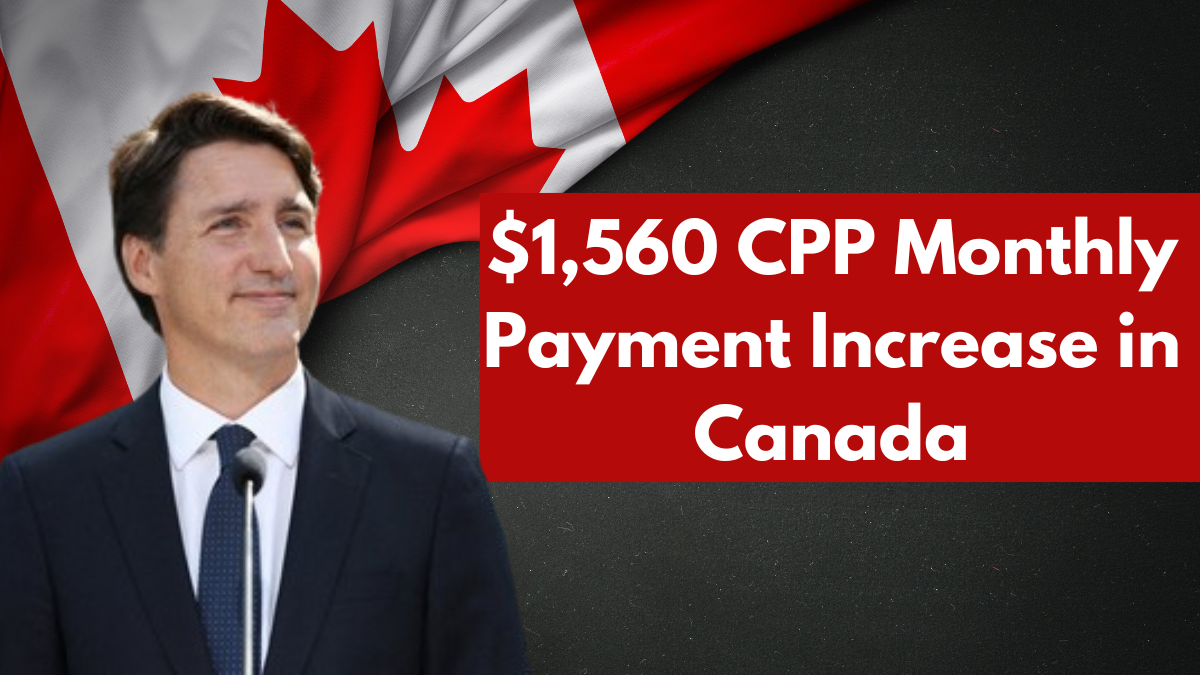The Canada Pension Plan (CPP) plays a vital role in ensuring financial security for retirees across the country. In 2024, a significant enhancement has been introduced, allowing eligible recipients to receive up to $1560 per month. This guide provides an in-depth exploration of eligibility criteria, payment schedules, and strategies to maximize your benefits under the enhanced CPP program.

Understanding the Canada Pension Plan (CPP)
The Canada Pension Plan (CPP) is a mandatory contributory pension system designed to provide financial support to retired Canadians. It functions as one of the three pillars of Canada’s retirement income system, complementing Old Age Security (OAS) and private retirement savings.
Employed Canadians contribute to the CPP throughout their working years, with contributions automatically deducted from their paychecks. Upon retirement, these accumulated contributions are converted into monthly payments, ensuring a stable income stream.
Breakdown of the $1560 CPP Monthly Payment Increase
The recent increase in the CPP monthly payment is part of a broader enhancement initiative that began in 2019. This enhancement aims to strengthen financial support for retirees by gradually increasing contribution rates and raising the maximum pensionable earnings limit.
Key Features of the 2024 CPP Enhancement:
- Maximum Monthly Payment: Up to $1560 for eligible retirees.
- Higher Contribution Rates: Employers and employees contribute more, leading to greater retirement benefits.
- Increased Pensionable Earnings Ceiling: Allows higher contributions, directly impacting benefit amounts.
- Post-Retirement Benefits: Continued contributions after retirement can further increase benefits.
The increase is designed to help retirees maintain a comfortable standard of living and meet their financial needs more effectively.
Who is Eligible for the $1560 CPP Monthly Payment?
Not all retirees will receive the full $1560 per month. The amount varies based on several factors:
1. Contribution History
Your qualification for the maximum CPP benefit is based on both the amount and duration of your contributions. To receive the full benefit, you must have consistently contributed the maximum permitted amount throughout your working years. For 2024, the maximum pensionable earnings are set at $68,500.
2. Age at the Start of CPP Payments
- The earliest you can begin receiving CPP is at age 60.
- If you opt to receive CPP before 65, your payments will be reduced by 0.6% per month (a total of 36% if taken at 60).
- If you delay until after 65, your payment will increase by 0.7% per month until age 70, maximizing the benefit.
3. Years of Maximum Contributions
CPP payments are calculated based on your best earning years. If you consistently contributed near the maximum, you are more likely to receive the highest possible payment.
CPP Payment Dates for 2024
The Canada Pension Plan payments are issued on the third-last business day of each month. Below is the schedule for 2024:
| Month | Payment Date |
|---|---|
| January | January 29 |
| February | February 26 |
| March | March 27 |
| April | April 26 |
| May | May 29 |
| June | June 27 |
Ensure you mark these dates to stay informed about when your payments will be deposited.
How to Apply for the $1560 CPP Monthly Payment
Applying for CPP benefits is a straightforward process, but it is advisable to start early to avoid delays.
Step-by-Step Application Process:
| Application Method | Steps | Notes |
|---|---|---|
| Online Application | 1. Log in to My Service Canada Account. 2. Follow the instructions to submit your application. |
Fastest and most efficient method. |
| Paper Application | 1. Download the CPP application form from the Service Canada website. 2. Complete the required fields and mail it to the designated address. |
Traditional method requiring mailing. |
| Processing Time | Apply at least six months in advance. | Ensures timely processing. |
Strategies to Maximize Your CPP Benefits
To get the most out of your CPP payments, consider these strategies:
- Delay Your Benefits: If financially possible, delaying CPP until age 70 can significantly increase your monthly payments.
- Continue Working Post-Retirement: Contributions after retirement can further enhance your benefits.
- Check Contribution History: Regularly review your contribution records to ensure accuracy and completeness.
- Plan for Taxes: Understand that CPP payments are taxable, so plan accordingly to minimize tax liabilities.
Final Thoughts
The 2024 CPP enhancement, which offers up to $1560 per month, is a significant step in strengthening the financial stability of retirees in Canada. By understanding eligibility requirements, payment schedules, and strategies for maximizing benefits, individuals can make informed decisions about their retirement planning.
For further details, visit the official Canada Pension Plan website or consult a financial advisor to tailor a retirement strategy suited to your needs.
Frequently Asked Questions (FAQs)
1. Will everyone receive $1560 per month in CPP payments?
No, only those who have contributed the maximum amount for a significant portion of their careers will receive the full benefit. Individual payments vary based on contributions and the age at which benefits begin.
2. What happens if I apply for CPP at age 60?
If you apply at 60, your monthly benefit will be reduced by 36% compared to what you would receive at age 65. This reduction is permanent.
3. Can I increase my CPP payments after retirement?
Yes. If you continue working and contributing to the CPP, you may be eligible for the Post-Retirement Benefit, which increases your monthly payments.
4. How do I check my contribution history?
You can review your CPP contribution history online by logging into My Service Canada Account.
5. When should I apply for CPP?
It is recommended to apply at least six months before you plan to start receiving benefits to avoid processing delays.
For More Information Click Here
